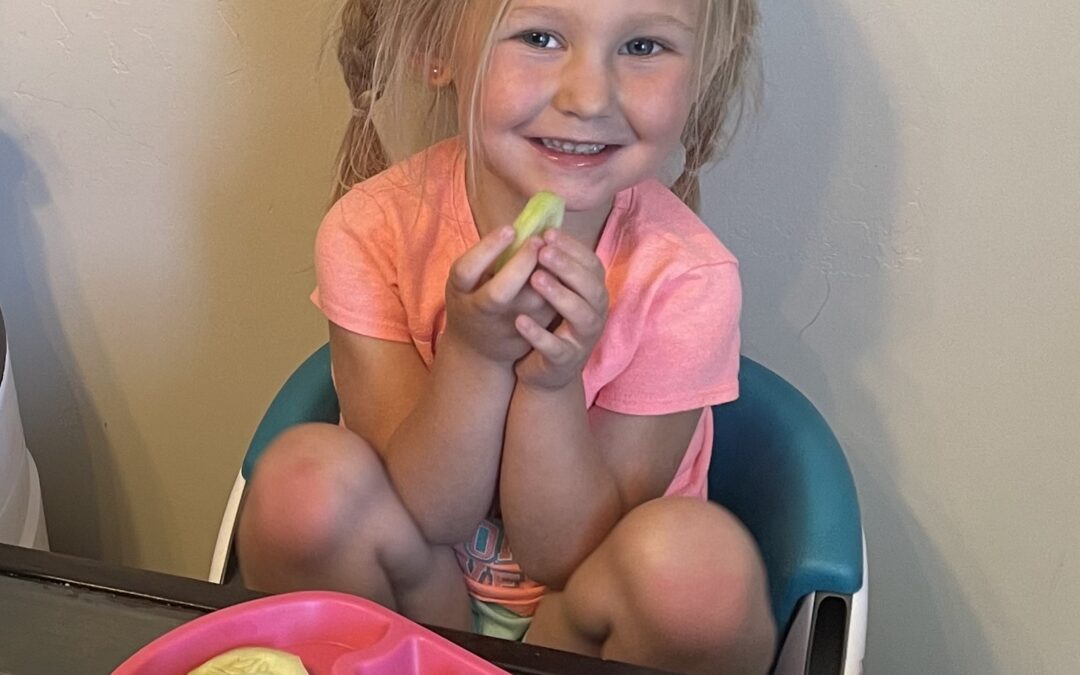Recently while running errands, my 3-year-old told me her tummy was telling her it needed a hamburger. It was close to lunch time so we pulled into the closest burger place and ordered. On this particular day, she wanted pickles, tomatoes, mustard, and no cheese. When our meal arrived I watched as she removed the top bun and ate, first, the pickle and tomato, then the top and bottom bun in that order, drank her milk and declared she was done. Her lone piece of meat still sat there. I didn’t push the issue of eating it since she was telling me her tummy was full at this point. I did think about it though. The dietitian in me couldn’t help but worry that she might need a little more protein but I held back the comment which wouldn’t have meant much to her anyway. She eventually taught me the wisdom of her choices. Later that week she asked for a bowl of leftover roast beef for her night snack because that is what her body needed.
I love watching her eat. Without even trying, she gets a wide variety of foods based solely on what her tummy is telling her. She doesn’t think too hard about it. She eats what sounds good when the food is available and holds off on the stuff that doesn’t.
Do you remember when this was how you ate? Many of us have probably forgotten. Kids are so wise in the way they listen to their body signals. They can eat without wondering what the person next to them are thinking about them or if they moved enough earlier in the day to “deserve” such a tasty bite.
Being able to eat intuitively means that we revert back somewhat to making more of our eating decisions using our internal cues vs the external rules that diet culture has taught us to implement. We are able to use the data we have collected from eating for years and combine that with our body’s individual signals to promote well-being and health in all aspects.
The term “Intuitive Eating” was coined by two dietitians in 1995, Evelyn Tribole and Elyse Resch. Since that time, study after study has indicated the benefits associated with it. Evelyn and Elyse released the 4th edition of their book in 2020 with updated wording and more inclusive language. In it, they describe 10 principles of becoming a more intuitive eater:
- Reject the Diet Mentality
- Honor Your Hunger
- Make Peace with Food
- Challenge the Food Police
- Respect Your Fullness
- Discover the Satisfaction Factor
- Cope with Your Emotions with Kindness
- Respect Your Body
- Movement – Feel the Difference
- Honor Your Health with Gentle Nutrition
By individualizing these principles to each client, intuitive eating can be a tool to help get to a place where eating is easier and more enjoyable.


Recent Comments